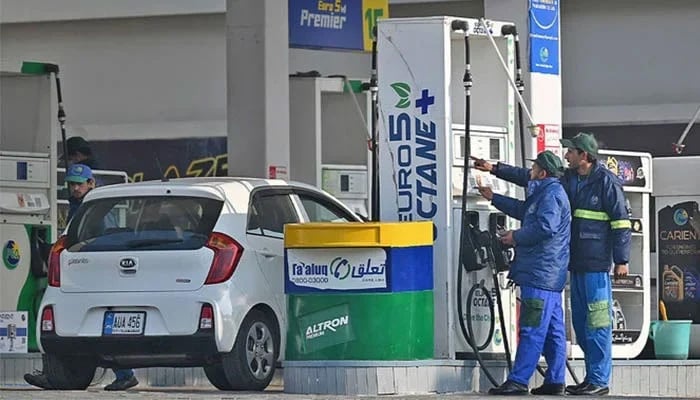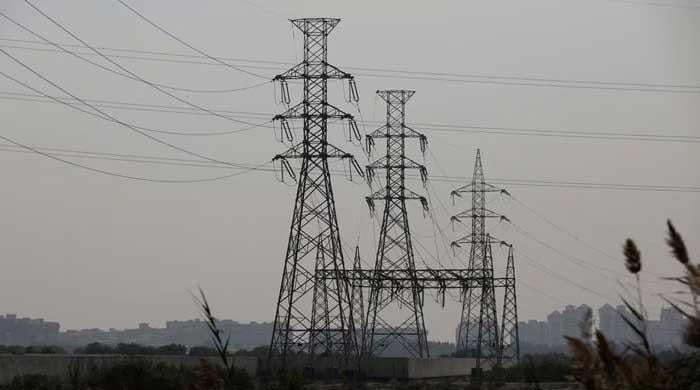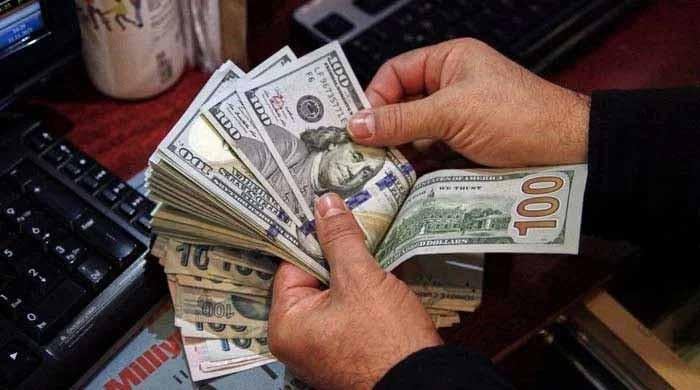Govt reduces petrol price by over Rs6 per litre for next fortnight
High-speed diesel price slashed by Rs10.86 per litre; new fuel rates take effect from August 1
July 31, 2024

- Kerosene oil to be sold at Rs177.39 per litre.
- LDO price drops by Rs5.72 to Rs160.53 per litre.
- New consumer prices based on int'l rate variations.
The federal government has reduced the price of petrol by Rs6.17 per litre for the next fortnight following a drop in rates of international petroleum products, according to a statement issued by the Prime Minister's Office on Wednesday.
The new prices will be effective from August 1.
The Oil and Gas Regulatory Authority (OGRA) worked out the consumer prices for the upcoming fortnight, based on international prices and exchange rate variations, the notification read.
After the PM's approval, the petrol price was fixed at Rs269.43 per litre, down by Rs6.17, from Rs275.60.
The new price of high-speed diesel (HSD) is now Rs272.77 per litre, reflecting a drop of Rs10.86 from the previous Rs283.63.
| Products | Existing price | New price | Increase/Decrease |
| Petrol | Rs275.60 | Rs269.43 | - Rs6.17 |
| High-speed diesel | Rs283.63 | Rs272.77 | - Rs10.86 |
| Kerosene oil | Rs183.71 | Rs177.39 | - Rs6.32 |
| Light diesel oil | Rs166.25 | Rs160.53 | -5.72 |
The price of kerosene oil has been decreased by Rs6.32 per litre, bringing its retail rate down to Rs177.39 from Rs183.71.
Moreover, the price of light diesel oil (LDO) was eased by Rs5.72 to Rs160.53 from Rs166.25.
The relief in POL [petrol, oil, lubricants] prices were expected after the “$1.50 per barrel reduction in premium by Kuwait Petroleum Company (KPC) on diesel and less demand for POL products by the world's best biggest economies i.e., the United States and China," The News reported quoting sources two days ago.
In the previous fortnightly review, the petrol price was increased by Rs9.99 per litre for 15 days — from July 16 to July 31. The rate of high-speed diesel (HSD) was also raised by Rs6.18 per litre.
However, the petroleum development levy (PDL) remains unchanged despite the federal government increasing it by Rs10 per litre — from Rs60 to Rs70 — in the federal budget for 2024-25.
Petrol, also called mogas, is mainly used in private transportation, small vehicles, rickshaws, and two-wheelers. Higher fuel prices significantly impact the budgets of the members of the middle and lower-middle classes, who primarily consume petrol for commuting.
On the other hand, a significant portion of the transport sector relies on high-speed diesel. Its price is considered inflationary since it is predominantly used in heavy transport vehicles, trains, and agricultural machinery such as trucks, buses, tractors, tube wells, and threshers.
The consumption of high-speed diesel particularly contributes to the increased prices of vegetables and other food items.









